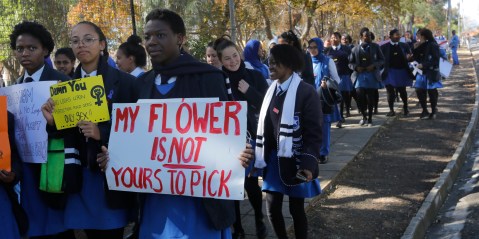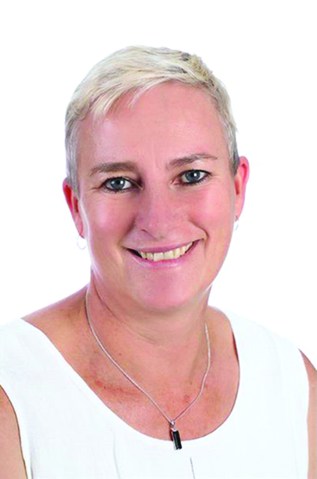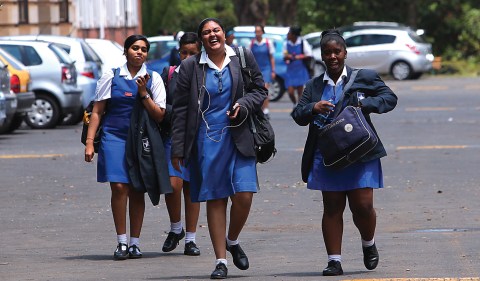EDUCATION OP-ED
New research shows women in school leadership positions improve results and well-being
Emerging research on the role of women leaders in improving educational outcomes can help us to understand why some schools are high achievers, and some are not.
There has been a worldwide focus on girls’ education and finding ways to increase access and retention in school. Particular attention has also been paid to improving learning and girls’ holistic well-being. Unicef recognises that the positive effects of female teachers on girls’ education have been well researched, but identifies the missing piece of the gender puzzle as school leadership and the absence of women school leaders in schools globally.
International research consistently shows that school leaders play a critical role in creating high-quality teaching and learning environments. For example, in the South African Ministerial Report on Schools that Work, the authors argued that effective school leaders contribute to improving student learning outcomes, closing equity gaps, and fostering strong relationships in communities.
Emerging analysis and research from Unicef Innocenti and other organisations show that women-led schools may perform better than men-led schools. In Lao Peoples’ Democratic Republic, Unicef’s research shows that highly effective schools — schools that perform better than others in a similar context with the same resources — are twice as likely as other schools to be led by a woman (Lao Peoples’ Democratic Republic is a landlocked country in Southeast Asia, bordered by Myanmar, China, Vietnam, Cambodia and Thailand and is ruled by a single-party communist government).
Parktown Girls, a high-achieving school
Parktown Girls High School is consistently one of the highest achieving schools in Gauteng. Last year, as in previous years, all 190 girls passed and achieved an almost 100% university pass. Many of the girls scored stellar results, and both Wits and the University of Johannesburg recognise the school as one of their top feeder schools. I visited the school to investigate their strategies for success.
The school is incredibly well-maintained, there isn’t a blade of grass out of place or a piece of litter lying anywhere. The nearly century-old building is as grand as the day it was built, and the photographs and memorabilia on display sing its proud history. I got the sense that the building with its elegant spaces is well-used and cared for.

Girls from the all-girls school, Parktown Girls High, protest outside their school to highlight women’s rights in Johannesburg, South Africa, 01 June 2017. EPA/KIM LUDBROOK
The school is led by a team of spirited women. The principal, Tracey Megom, a little hesitant at first in the interview, is dynamic and responsive. She is closely connected to her students and doesn’t shy away from the classroom. She knows her 1,200 girls and is cognisant of their needs. I immediately have a sense that she is in sync with the needs of the 21st-century teen.
For example, she knows she is working with “woke” young people who are very alert to justice and racism, and that the children in her charge are keen to challenge and she knows how to listen to concerns.
Ms Megom is someone who champions distributive leadership. She is very aware that in a school the size of Parktown Girls she cannot do it all on her own, and she surrounds herself with competent staff that she can trust — from the alert security staff, to the welcoming receptionist, the enthusiastic young teachers, and the staff responsible for the beautiful grounds.

Principal of Parktown Girls’ High Tracey Megom
Her leadership team complements her. Judy Koch has the responsibility of pastoral care and leads a team of two psychologists and a social worker. She also works with the house heads to ensure that no child goes unnoticed. She speaks of the tremendous challenges young people face today in the wake of one of the world’s worst pandemics. She tells of increased anxiety and depression and a lot more violence as young people relearn how to meaningfully engage face to face.
Ms Koch is also responsible for discipline and is quick to involve parents when serious concerns arise. The school uses a restorative approach and students are encouraged to recognise the harm caused by their actions and to put things right wherever possible. Where necessary community service is used, and when needed the social worker is involved.
Listening to her I realise that schools are dealing with similar issues around the city. Angst and the general after-effects of Covid-19 drive a lot of mental health issues. There is a struggle to connect with parents again and to bring them back into school life.
Gail Davidson is the deputy principal who focuses on the extracurricular life of the school and parent involvement. I get a sense of business from her office with piles of sports equipment and boxes for the upcoming golf tournament. Gail is an “old girl”, intensely loyal to the school and committed to making the school an incredible place. She too speaks of the impact of Covid-19 on school life and the struggle to get parents involved again. She speaks of the effort needed to get girls involved in extramural activities again and of the immense benefits of that involvement.
Visit Daily Maverick’s home page for more news, analysis and investigations

Matric pupils of Parktown Girls High School leave the school in a jovial mood after writing the English paper 1 on October 22, 2012 in Johannesburg, South Africa. (Photo by Gallo Images / The Times / Alon Skuy)
Davidson reflects on the dynamics of their own leadership team and observes that “we discuss a lot and don’t necessarily always agree with each other”. She speaks proudly of their ability to look critically at themselves and make changes if they need to. As a person who loves the rich history of the school, she knows that the world is in flux and that they cannot “be stuck in our ways”. She explains that their leadership team has clearly defined roles, but that this does not stop them from helping when they need to. “Laughter”, she observes: “is a tonic that keeps us going when things get tough”.
I was keen to speak to Candice Bremner, the person responsible for academic and curriculum development as well as teacher development. I imagined that achieving good academic results across the board, like the school does, requires extensive planning and energy. Her responsibilities also include staff development — and the school takes this very seriously.
There are weekly staff development sessions, and a lot of time is spent on the formation of new staff. Staff development is driven by student needs and regular reflection on their teaching practice. Staff development includes a variety of courses and presentations.
Bremner is excited about the vast array of online university programmes available today; she enthusiastically shares a new Science of Learning MOOC that “you must try out”. And we quickly compare notes on good teacher development websites, and which ones offer useful information.
A lot of effort goes into academic planning and girls who need additional support are afforded it. Special attention is given to subject choice and making sure that girls are on the correct learning track. The performance of students is closely monitored, and parents are involved in discussions concerning their daughters’ progress. The pastoral care team is engaged to offer additional support when needed. They organise “change chats” with the girls to make sure that the school is attentive to their particular needs.
Schools led by women excel
Let’s look closer at the Unicef research and what it might mean for us. Lao PDR, like South Africa, has made steady progress in expanding access to education, yet many children still leave primary education without being able to read, write, or perform simple numerical calculations. However, despite this crisis, some schools outperform others, even in the most disadvantaged areas and important lessons are drawn from these outlier schools.
The Unicef research investigated grassroots solutions to help improve the quality of education. They analysed student assessment data in 120 schools to identify school effectiveness while controlling for student, household, and community contextual features. The less effective schools were in contexts with similar characteristics to the highly effective schools, yet they achieved lower outcomes.
The research findings are very interesting and are in line with a growing body of international research evidence which says that effective schools are significantly more likely to be headed by female principals compared with average and low effective schools. In fact, highly effective schools are twice as likely to have a female principal in charge.
Their analysis suggests that women-led schools have better management practices and create better teaching and learning environments. Students studying in these schools report that their teachers are more likely to check their work, assign homework, and teach until everyone understands, relative to students in schools led by male principals.
Principals in effective schools tend to be slightly younger. Principals in highly effective schools were on average 44 years of age, compared with 48 years in low effective schools. The researchers observed that older and more experienced school principals were posted to larger urban schools.
Principals in highly effective schools emphasise teacher support and collaboration more than principals in low effective schools. Researchers noted that “42% of school principals in highly effective schools reported that they observe teachers often, compared with only 20% in low effective schools. 9% of school principals in low effective schools reported that they never observe teachers, compared with only 3% in highly effective schools. Also, teachers in highly effective schools are more likely to be involved in decision-making processes pertaining to their schools, according to the principals.”
Principals and teachers in highly effective schools provide significantly more frequent feedback to parents regarding student assessments and progress.
The research found that effective principals foster trust, respect, and innovation within their schools. Researchers conclude that “school principals in highly effective schools are significantly more likely to report that teachers feel comfortable asking other teachers or the principal for advice, and teachers treat each other with respect.”
Importantly they observe that teachers in these schools discuss learning from mistakes and failures more openly and more frequently — a feature that correlates positively with student achievement. Broader research has shown that collaborative learning cultures are known to be important predictors of a school’s preparedness for change, alongside its ability to embrace innovation.
An agenda for future research
What might this research mean in relation to Parktown Girls? Like the effective principals in the Unicef study, the leaders are female, they support their teachers, recognise their parents as partners and provide excellent support, and build trust and respect in their school.
It is obvious that one school visit can’t be construed as research, but the track record of the school does provide future researchers with a basis to investigate whether the conclusions of the Unicef study are true for this remarkable school.
Researchers will be able to confirm, or refute, the claim that skilled female school leaders are able to raise educational achievement, particularly in the way they promote collaboration, provide support to teachers, engage parents as partners and build trust and respect in school communities. DM
Mark Potterton is Pre-Primary and Primary School Principal at Sacred Heart College Marist Observatory in Johannesburg.

This article was first published in DM168, Daily Maverick’s weekly newspaper. The newspaper is available at Woolworths, Pick ‘n Pay, Spar, Checkers, Exclusive Books and garage stores.




















 Become an Insider
Become an Insider
Look no further than Rivonia Primary School and the exceptional Carol Drysdale. A huge pity Lesufi and his band of illiterate thugs keep up their twisted agenda.